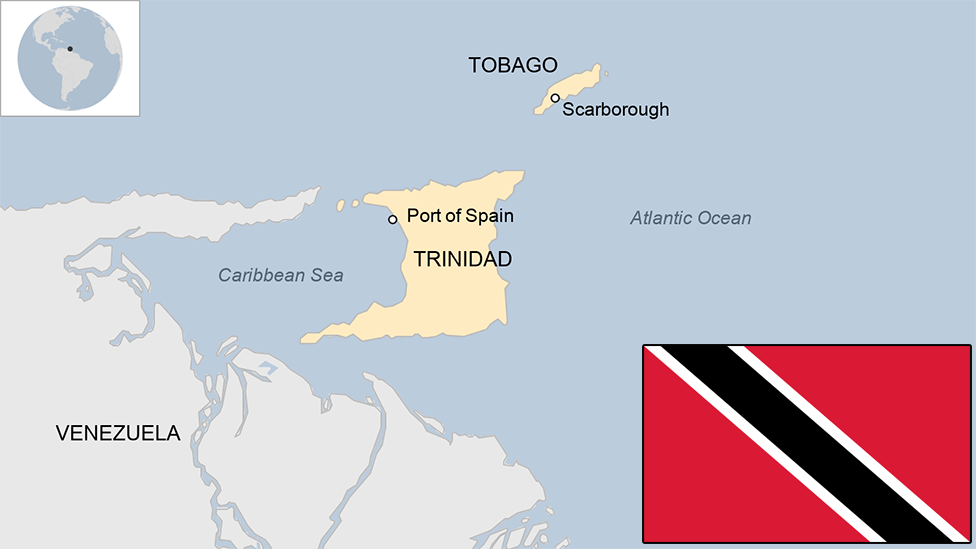Grenada country profile
- Published
This page is no longer being updated. It was last updated on 27 March 2023
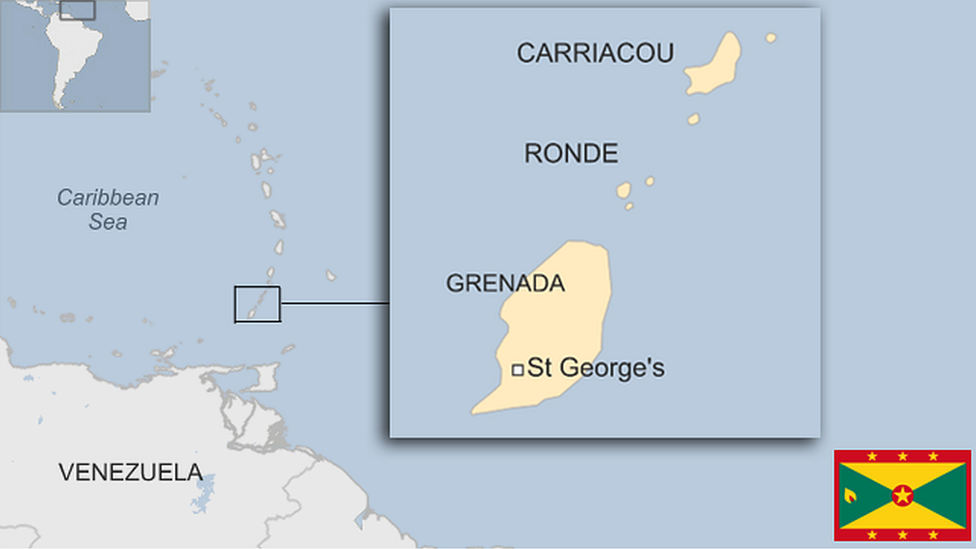
The tiny Caribbean island of Grenada is one of the smallest independent countries in the western hemisphere.
Known as the Spice island, it is the world's second-largest producer of nutmeg after Indonesia and a significant producer of mace, cinnamon, ginger and cloves. It also boasts beautiful scenery with fertile valleys, rainforests and mountain lakes and its tropical climate and excellent beaches are a big draw for tourists.
Grenada made international headlines in 1983 when a split in the governing left-wing party led to the overthrow and execution of the country's charismatic leader Maurice Bishop and provided the pretext for a US invasion of the island. Free elections were reinstituted a year later and have continued since then.
Most of the population is of African or mixed African and European descent.
Read more country profiles, external - Profiles by BBC Monitoring, external
GRENADA: FACTS
Capital: St George's
Area: 348.5 sq km
Population: 124,600
Languages: English, plus Grenadian Creole English, Grenadian Creole French
Life expectancy: 72 years (men) 78 years (women)
LEADERS
Head of state: King Charles III, represented by a governor
Prime Minister: Dickon Mitchell
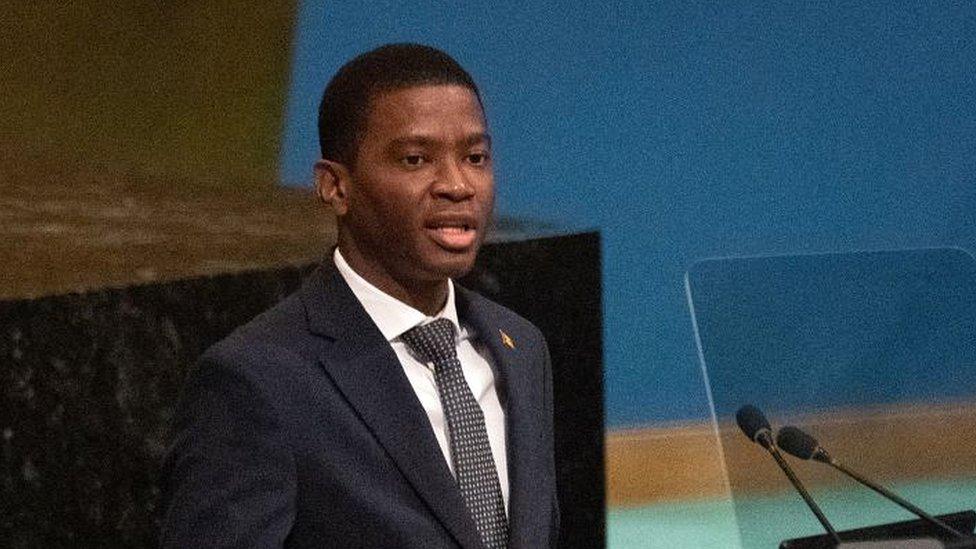
Dickon Mitchell's National Democratic Congress won the June 2022 general election with slightly over 51% of the popular vote and winning nine out of the fifteen available seats - defeating the veteran politician Keith Mitchell, who had served five times as Grenada's prime minister.
The 44-year-old pledged to end nepotism and corruption, which he said was hampering the growth of the tri-island nation.
Dickon Mitchell's election victory came as Grenada faces the challenge of creating job opportunities in a country grappling with high inflation and rising unemployment.
MEDIA
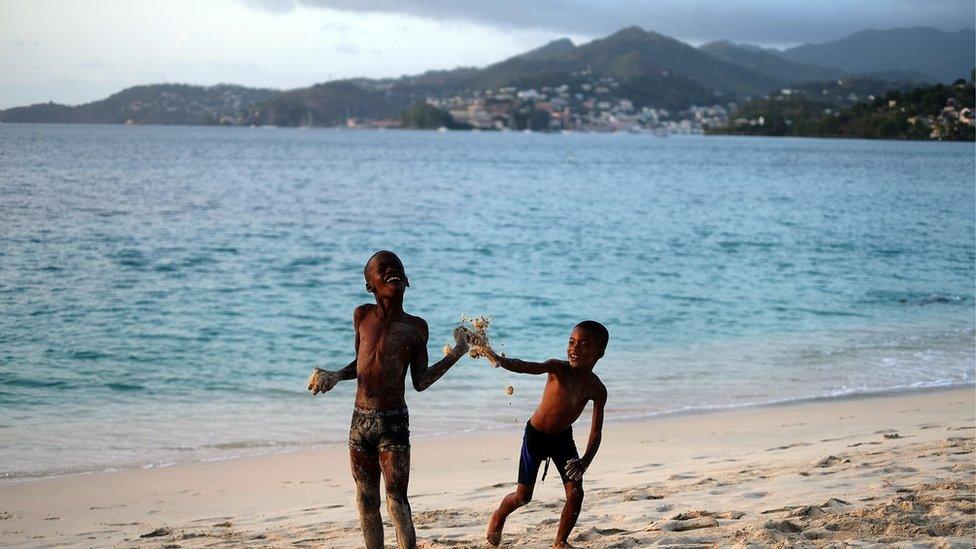
Grenada has a high level of media freedom, guaranteed in the constitution. The country has no daily newspapers; its privately-owned weeklies freely criticise the government.
A public-private partnership, the Grenada Broadcasting Network, provides radio and television stations. MTV is privately owned and there are several privately-owned radio stations.
TIMELINE
Some key events in the history of Grenada:
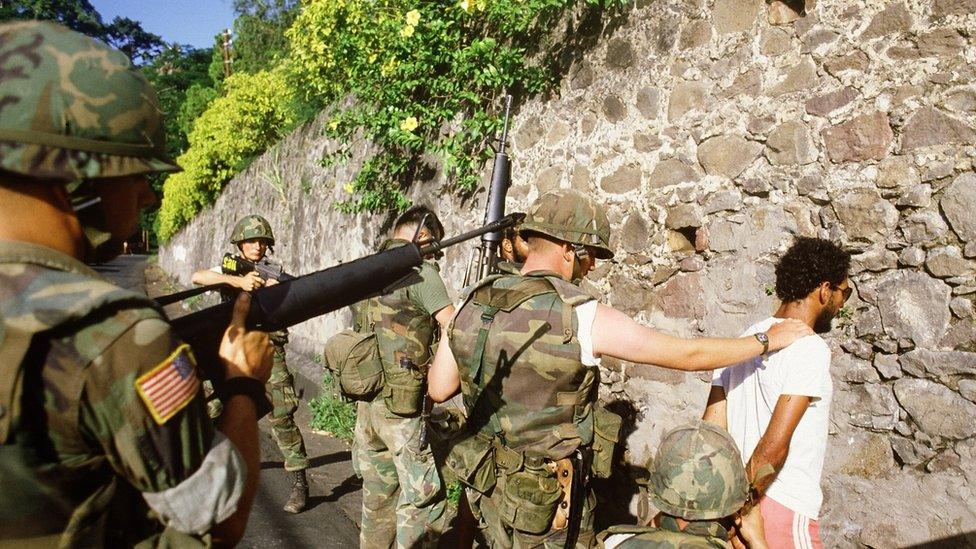
The US and other countries from the region intervened following the 1983 coup
700 - First inhabited by Arawak-speaking Amerindians from South America who are displaced by Carib settlers.
1498 - Christopher Columbus visits the island but it remains uncolonised.
1649 - The French gain control, establish sugar estates and import thousands of African slaves.
1763 - The British assume control and vigorously expand sugar production and introduce cotton, cacao and nutmeg.
1783 - France cedes Grenada to Britain in accordance with the Treaty of Versailles; African slaves brought in to work on the cotton, sugar and tobacco plantations.
1834 - Slavery abolished.
1885-1958 - Grenada acts as administrative headquarters of the British Windward Islands.
1950s - National politics develops through the labour movement. Pro-independence Grenada United Labour Party is formed.
1958-62 - Grenada is part of the British-sponsored Federation of the West Indies.
1967 - Grenada becomes autonomous, with foreign and defence affairs remaining under British control.
1974 - Independence from Britain and Eric Gairy becomes Grenada's first prime minister.
1979 - Gairy is deposed in a coup by opposition leader Maurice Bishop, whose Marxist military council forges links with Cuba.
1983 - Bishop is overthrown in a military coup and executed. The US invades Grenada with six other Caribbean nations.
1984 - Democracy returns after 1974 constitution is reinstated and free elections are held.
2000 - Truth and Reconciliation Commission set up with South African help to examine political upheavals of the "Revolutionary Years" between 1976 and 1983.
2004 - Hurricane Ivan devastates Grenada, damaging 90% of the island's buildings and devastating its nutmeg crop.
2005 - Grenada re-establishes diplomatic ties with China, favouring Beijing over its former diplomatic partner Taiwan.
2009 - The last seven of the 17 men convicted over the 1983 coup and murder of PM Maurice Bishop are released from prison after serving out their sentences.
2013 - The opposition New National Party wins a landslide victory in parliamentary elections, taking all 15 contested seats. Keith Mitchell returns as prime minister.
2022 - Dickon Mitchell's National Democratic Congress wins the June general election.
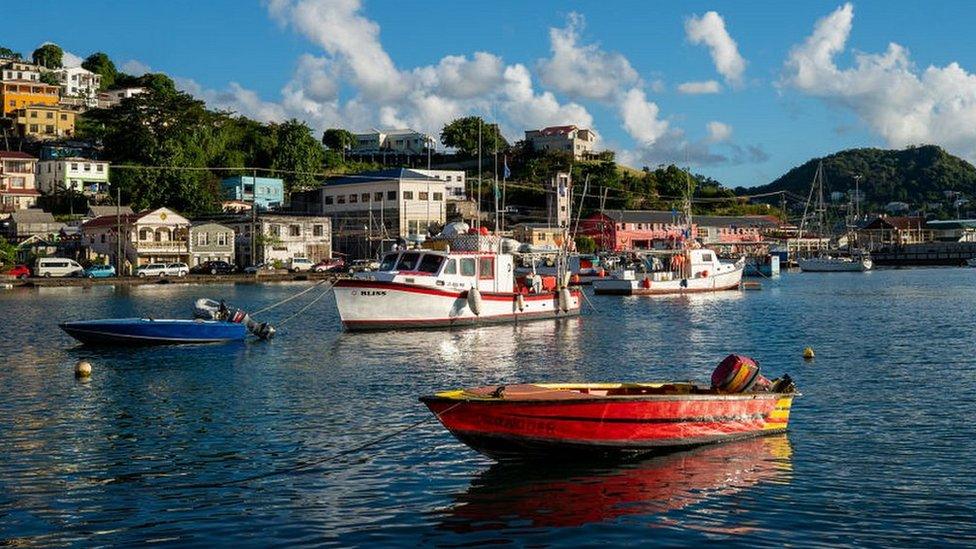
Grenada is the world's second-largest producer of nutmeg
- Published18 July 2023
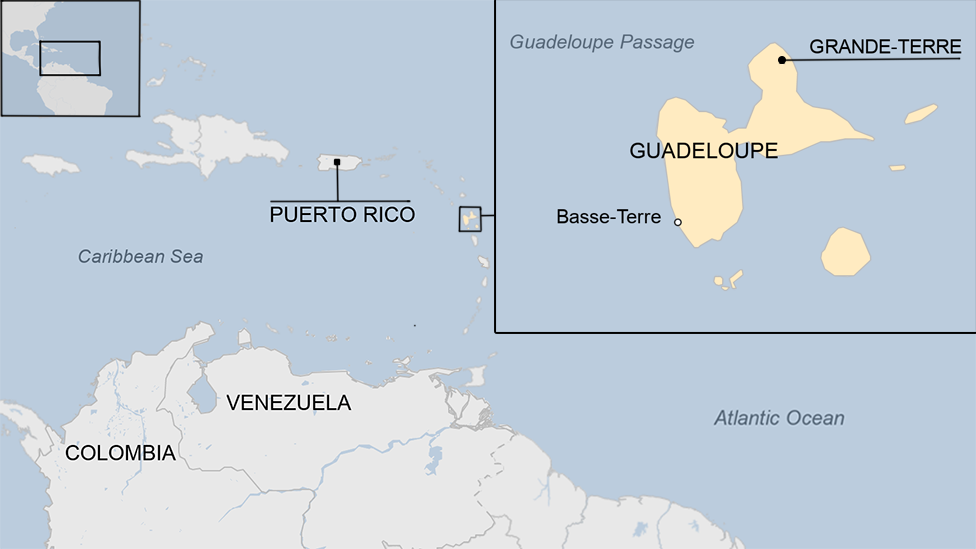
- Published2 April 2024
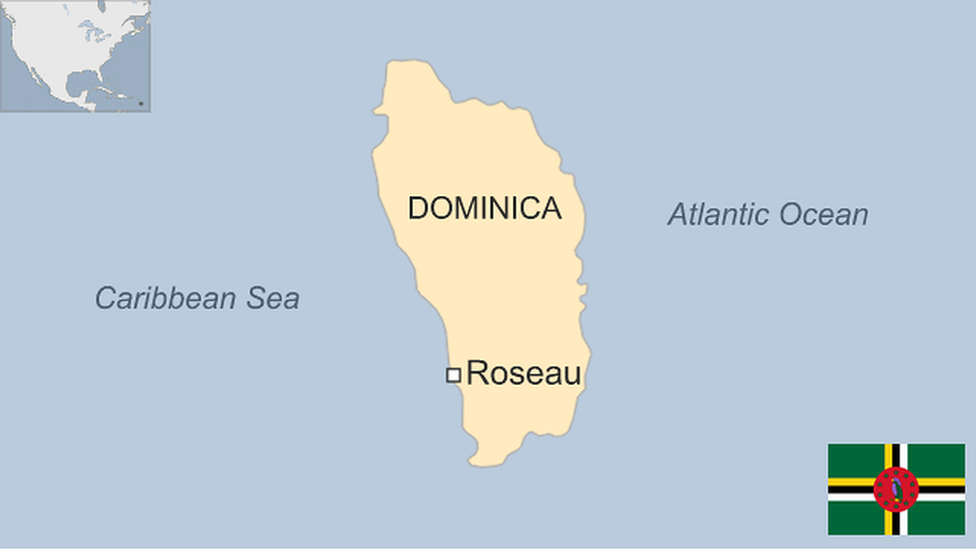
- Published10 July 2023
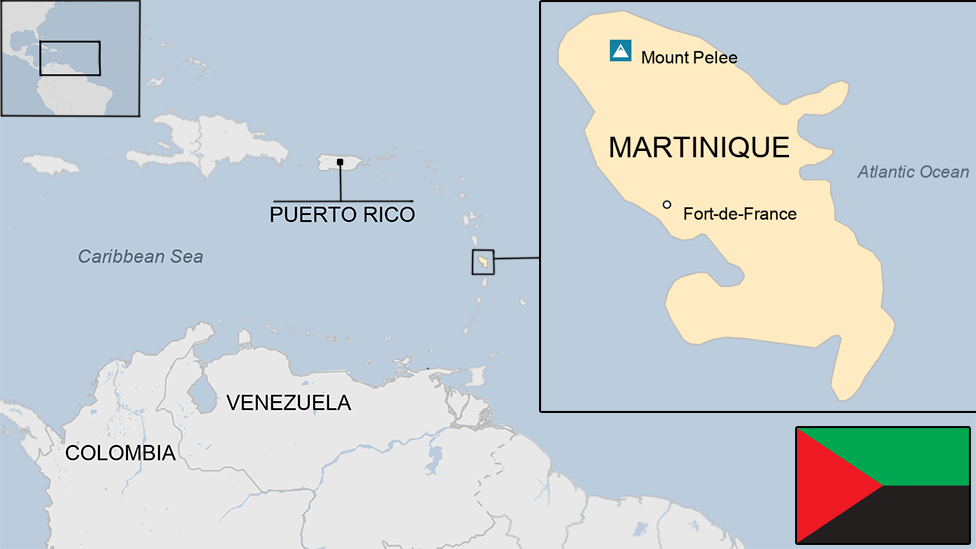
- Published2 April 2024
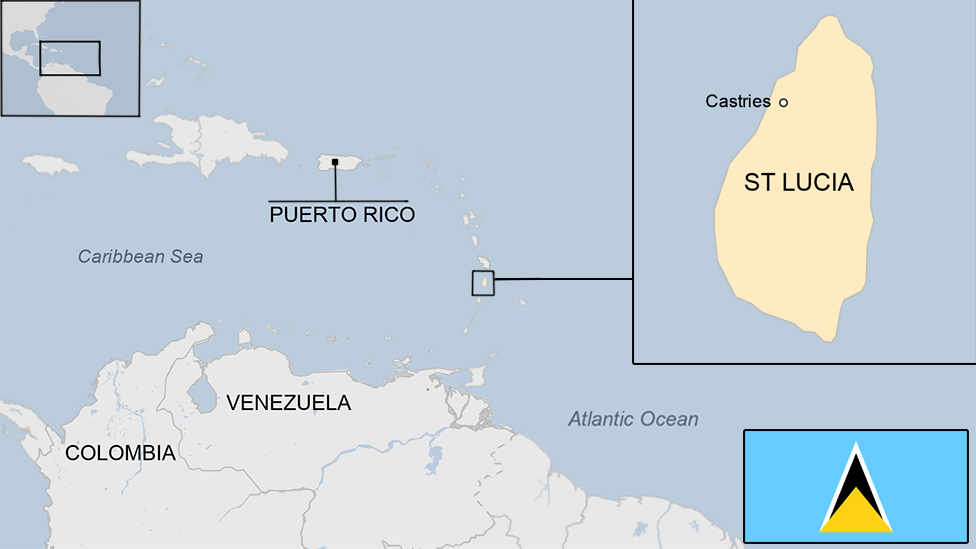
- Published13 May 2024
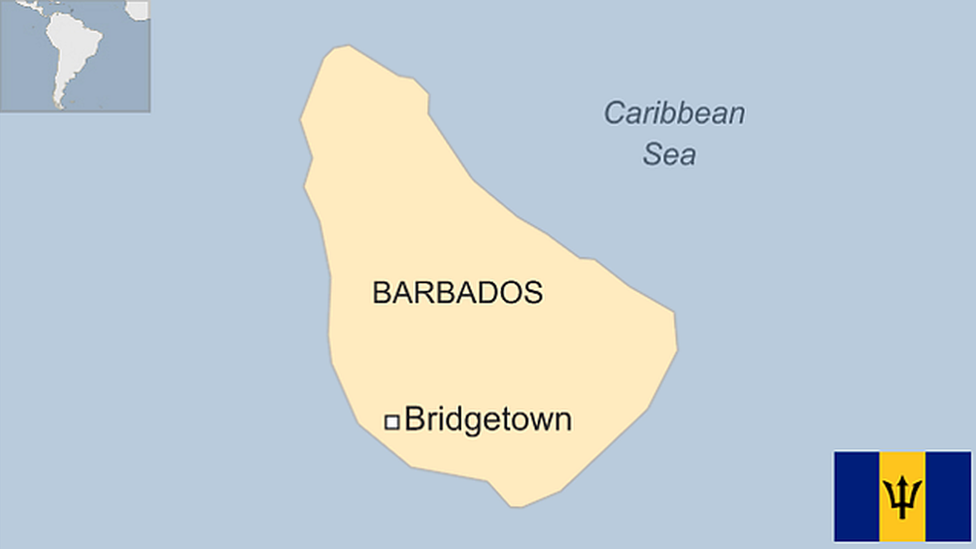
- Published24 April 2023
